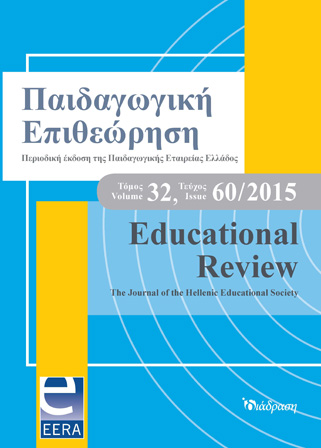Αποτελεσματική ηγεσία και πρακτικές ηγεσίας σε σχολικές μονάδες: Η οπτική του φύλου
Main Article Content
Περίληψη
The aim of the present research was to elicit beliefs held by primary school teachers in relation to effective leadership and the practices adopted by male and female leaders in school units. The sample of the study consisted of 327 teachers (115 male, 212 female), aged 23 to 65 (M=45.35, SD=.84). The methodology tool used was the questionnaire, which was structured as multiple choice questions. The findings of the research focus on women who believe that the effective leader is distinguished by collaboration, organization, determination, democracy, support and empowering. They also consider lack of confidence to be the foremost factor in their underrepresentation in the field of school leadership. Male teachers regard women as ineffective in their leadership role, as they believe that males manage conflicts at a more effective level and are more combative. As far as the ages are concerned, differentiations were detected, as teachers at the age of 31-40 emphasize flexibility as an effective leader’s trait, while the ages over 50 stress out guidance.
